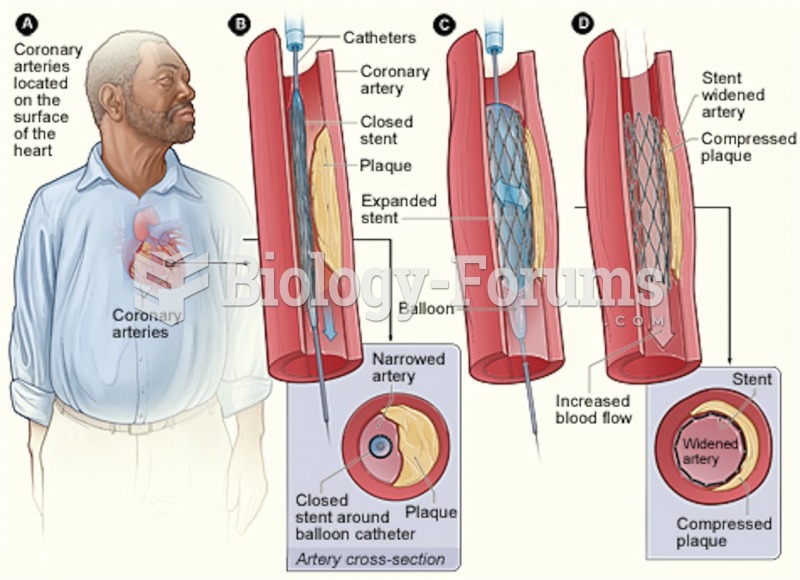|
|
|
The average adult has about 21 square feet of skin.
About 100 new prescription or over-the-counter drugs come into the U.S. market every year.
Cutaneous mucormycosis is a rare fungal infection that has been fatal in at least 29% of cases, and in as many as 83% of cases, depending on the patient's health prior to infection. It has occurred often after natural disasters such as tornados, and early treatment is essential.
More than one-third of adult Americans are obese. Diseases that kill the largest number of people annually, such as heart disease, cancer, diabetes, stroke, and hypertension, can be attributed to diet.
Less than one of every three adults with high LDL cholesterol has the condition under control. Only 48.1% with the condition are being treated for it.
 Two important changes occur in the upper airway in croup:The epiglottis swells, thereby occluding th
Two important changes occur in the upper airway in croup:The epiglottis swells, thereby occluding th
 Volvulus. A volvulus results when the small intestine twists, causing an obstruction that can lead t
Volvulus. A volvulus results when the small intestine twists, causing an obstruction that can lead t





